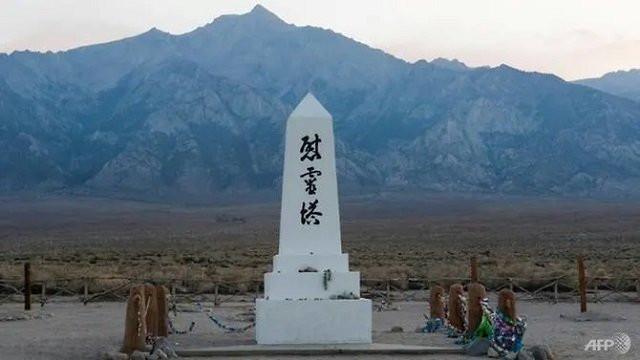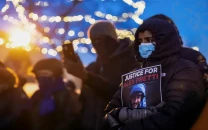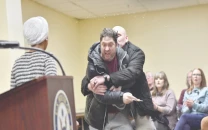California to apologise for WWII internment of Japanese
More than 120,000 Japanese-Americans were sent to 10 concentration camps throughout western states during WWII

A monument at the site of the Japanese-American concentration camp in Manzanar, California. PHOTO: AFP
State lawmakers are set to vote on Thursday on a resolution which states that the California legislature apologises for "the unjust exclusion, removal, and incarceration of Japanese Americans during World War II, and for its failure to support and defend the civil rights and civil liberties of Japanese Americans."
Up to 20 feared dead in WWII vintage plane crash in Switzerland
More than 120,000 Japanese-Americans were sent to 10 concentration camps throughout western states and Arkansas during World War II after President Franklin D. Roosevelt signed an executive order.
The February 19, 1942 order came just two months after the Japanese attack on Pearl Harbor.
"The apology is especially pertinent now with President (Donald) Trump in office," Democratic assembly member al Muratsuchi, who introduced the bill, told AFP in a statement.
"What I hear over and over from the Japanese American community is about how bothered they are about what is happening at our borders with children and families held in cages, being torn apart.
"For many survivors of the Japanese American camps it strikes a deep chord," he added. "They see in many ways history repeating itself."
How the longest day unfolded
The federal government apologised in 1988 for the forced removals that lasted up to 1945, and granted compensation to survivors.
Muratsuchi, who is Japanese-American, said it was essential for California to atone for its past mistakes given the role the state played.
"We like to talk a lot about how we lead the nation by example," he said in a tweet. "Unfortunately, in this case, California led the racist anti-Japanese American movement."



















COMMENTS
Comments are moderated and generally will be posted if they are on-topic and not abusive.
For more information, please see our Comments FAQ